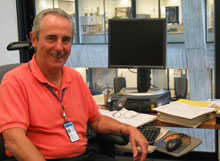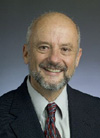 | Tuesday, November 7, 2006 |
|
Tuesday, November 7 THERE WILL BE NO ACCELERATOR PHYSICS AND TECHNOLOGY SEMINAR TODAY
Wednesday, November 8 THERE WILL BE NO FERMILAB ILC R&D MEETING THIS WEEK Click here for NALCAL, a weekly calendar with links to additional information. |
|
Extended Forecast |
Secon Level 3 |
|
Tuesday, November 7 -Tomato Bisque -Lemon Pepper Club -Burgundy Beef Tips -Smart Cuisine Baked Fish Creole -Grilled Chicken Caesar Wrap -Assorted Slice Pizza -Rio Grande Taco Salads |
|
Wednesday, November 8
Chez Leon Menu |
| Fermilab Today is online at: http://www.fnal.gov/today/ Send comments and suggestions to today@fnal.gov Fermilab Today archive Fermilab Today PDF Version Fermilab Result of the Week archive Fermilab Safety Tip of the Week archive Linear Collider News archive Fermilab Today classifieds Subscribe/Unsubscribe to |
| All-hands meetings today | |||||||||
|
| |||||||||
|
There will be two all-hands meetings in the auditorium today, November 7, at 11:00 a.m. and at 1:00 p.m. Employees are encouraged to attend one of the meetings and bring questions about the new FRA contract. To find answers to frequently asked questions before the meeting, visit the FRA transition website.
|
|
PhysOrg.com,
November 6, 2006: BaBar Steadies Omega-minus Spin If you snatch a copy of the Particle Data Book from your colleague's back pocket and flip to the entry for the Omega-minus particle, you'll see that the very first line says the spin is "not yet measured." That entry may soon be changed. The BaBar collaboration has established that the spin of the Omega-minus, a particle that was discovered more than 40 years ago, is 3/2. "The Omega-minus has been around for a long time and it's got a very interesting history," says BaBar collaborator Bill Dunwoodie. "It was a confirmation of Murray Gell-Mann's ideas about broken symmetry that led eventually to the quark model." The analysis of BaBar data was primarily conducted by Veronique Ziegler, a graduate student from the University of Iowa, with Dunwoodie. The findings are published in the Sept. 15 issue of Physical Review Letters.
Bubble chamber experiments, like the one that found the first Omega-minus particle in 1964, can produce only a small number of the particles, and the collisions that produced them were not well understood. By studying the angular distribution of the particles produced by the Omega-minus when it decayed, physicists obtained information on the Omega-minus's spin, but they were unable to say anything more than that it did not have spin 1/2.
|
| SILAFAE | ||
The past few days I attended VI-SILAFAE,
Leon Lederman, who is revered in the Latin American particle physics community for his years of support, opened the conference with a review of fifty years of neutrino physics. Later in the week, Jim Cronin presented results from the Pierre Auger observatory. Pierre Auger has become a major experiment for Latin American countries, and there are great expectations for the results coming in the next few years as the experiment accumulates statistics. There is strong participation of Latin American physicists in the US program, especially at Fermilab, and in Europe, primarily at CERN. Leon Lederman 25 years ago was a prime mover in developing Latin American particle physics, making it possible to develop and train theorists and experimentalists at Fermilab. Since then the Latin American groups have grown and now contribute to many of the world's primary particle physics experiments. CERN starting with Carlo Rubbia also played a very active role in helping to develop Latin American participation in particle physics. At this point there is not much involvement of Latin American physicists in the planning for ILC, although this machine is of great interest to them. In my discussions with Latin American colleagues it became clear that Fermilab can play an enabling role by providing the opportunity to participate in ILC planning and R&D while satisfying the needs of Latin American colleagues and their students for physics results by their simultaneous participation in the ongoing neutrino, particle astrophysics and energy frontier programs at Fermilab. |
|
November 3 - 6 - TeV E4 vacuum certified - MI RF cavity LCW leak - I- Source trips - Pbar resumes stacking - NuMI and MiniBooNE resumes taking beam - Recycler resumes stashing - NuMI kicker failure - Linac Klystron Debuncher problems Read the Current Accelerator Update |
|
Another computing scam:
SciTech museum pizza party
Free training on Digital Certificates |

